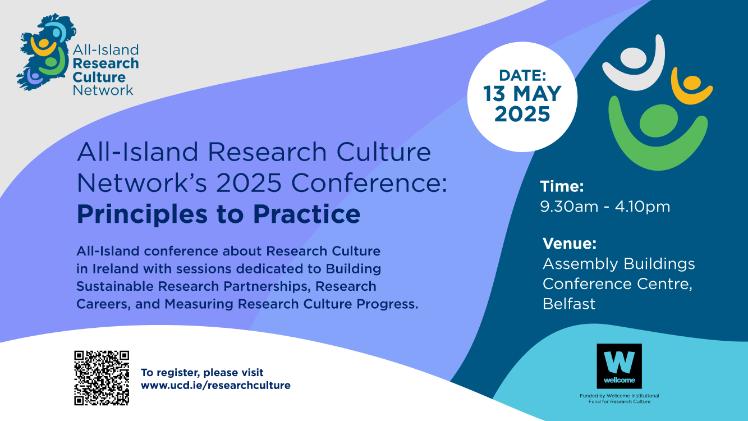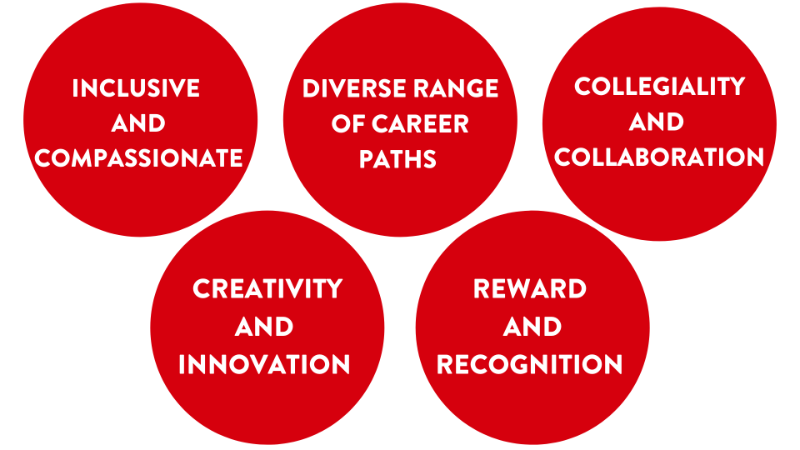Research Culture

Date: 13/05/2025
Time: 9:30AM - 4:00PM
Location: Assembly Buildings Conference Centre, Belfast
Category: General / Other, University Event
The University’s Research Culture Action Plan (RCAP) was published in January 2021. It represents our commitment to promoting a more supportive, inclusive, and collaborative research culture over the coming years. The Plan is a constantly evolving document which is co-owned and co-delivered by the research community at Queen’s. This site contains information about the actions and interventions we are implementing as part of this Plan.
Download the Plan
Research Culture Action Plan (PDF)
Let us know what you think
Suggestion Box
RESEARCHER RESOURCES
RESEARCH AND ENTERPRISE INTRANET


